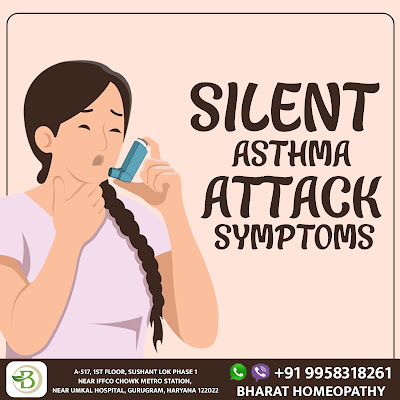Allergies, irritants in the air, other illnesses, including respiratory infections, exercise or physical activity, weather and air temperature, intense emotions, and some asthma medicine are among the most frequent causes of asthma. Each individual has different asthma triggers. Some people react to numerous, while others only to a small number.
It's crucial to note the factors or triggers that aggravate your condition if you have it. This may require investigation because asthma symptoms rarely appear immediately after exposure. Depending on the trigger and how sensitive a person is to it, delayed asthma attacks might happen.
The following are a few asthma triggers.
Allergies
It can be triggered by substances that cause allergies (allergens). The symptoms could appear if you inhale anything to which you are allergic. To lessen or prevent the disease’s episodes, avoiding or restricting contact with recognised allergens is recommended.
Antigens that frequently trigger allergic asthma include:
a dust mite
Cockroaches
Pollen Molds
Pet dander, an animal allergy
Rodents
Airborne Irritants
Environmental irritants can potentially trigger an asthma attack. Despite not being allergens, some substances can irritate inflamed, delicate airways:-
cigarettes, other tobacco, or marijuana product smoke, such as smog, ozone, and other types of air pollution
Timber fires
Charcoal grills
noxious vapours, fumes, or odours (including those from paint, petrol, perfumes, and scented soaps)
Airborne dust and particles
Chemicals
Exercise
Your condition may be impacted by exercise and other activities that cause you to breathe more quickly. Exercise is a common trigger, especially in cold weather. Exercise-induced bronchoconstriction (EIB), which can affect those with and without the disease, is brought on by physical exercise. It was once known as exercise-induced asthma (EIA). Symptoms could not show up until after engaging in prolonged exercise for many minutes. (If symptoms start to show up earlier, you usually need to change your treatment.) You won't need to restrict your physical activity with the right care. Everyone, especially those with the condition, should exercise.
Weather
Occasionally, dry wind, chilly air, or abrupt changes in the climate or temperature might trigger an asthma attack. If a thunderstorm occurs when pollen counts are high and humidity levels are high, those with the condition may also be affected. Pollen grains may be broken into tiny fragments by lightning when it strikes them. These particles are dispersed by the storm's wind, which makes it simpler for individuals to breathe them in.
Although it cannot be cured, it can be managed. Since everyone's condition is unique, you and your asthma doctor must develop a treatment plan for you. A detailed Asthma Action Plan with information on your asthma triggers and directions for taking your medications will be included in this plan.
When you have the disease, your airways undergo three changes:-
Inflammation of the airways
Mucus buildup that obstructs the airways
Muscles’ constriction around the airways
Your airways become smaller or narrower as a result of the swelling, obstruction, and muscle tension. Your airways have a harder time moving air through them easily, which makes breathing more difficult. These three modifications are the focus of certain homeopathic medicine for asthma. They facilitate breathing by widening your airways.




No comments:
Post a Comment